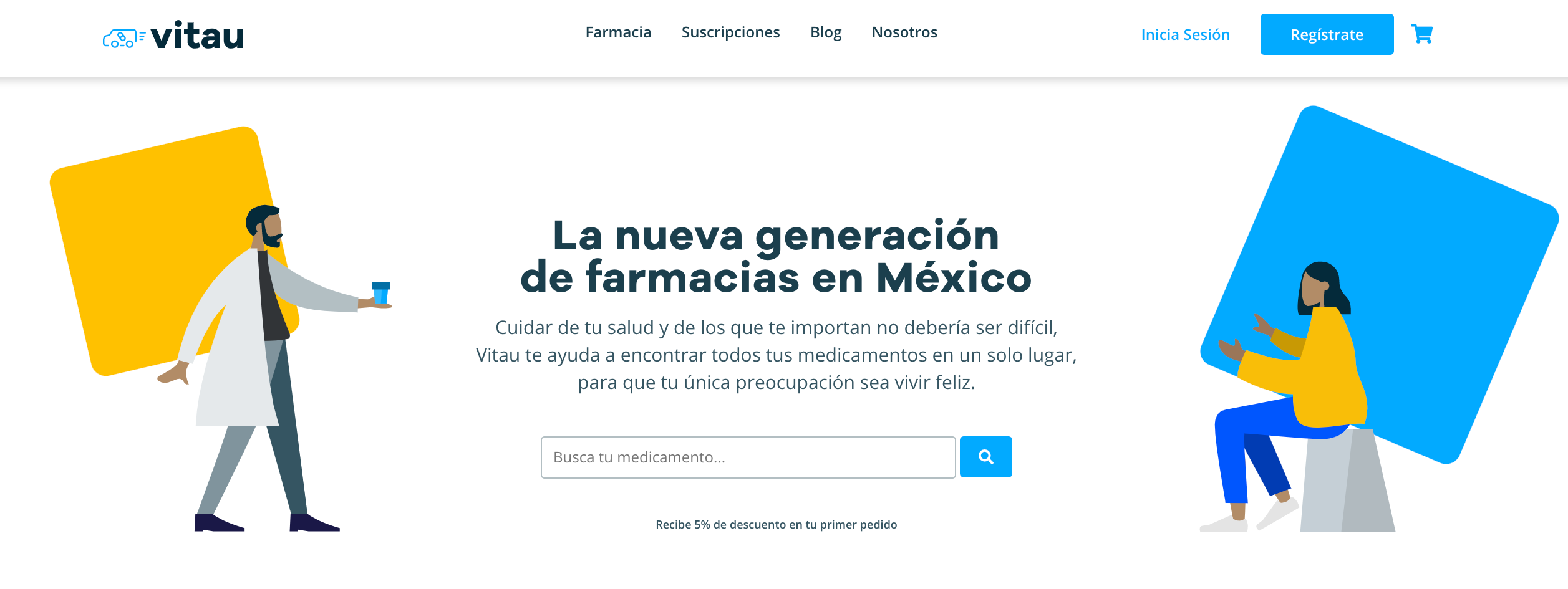
Vitau is a HealthTech company. They're the leading subscription pharmacy for chronic disease patients in Mexico - delivering both prescription medicine and insurance reimbursements.
What is Vitau?
Vitau is a HealthTech company. They're the leading subscription pharmacy for chronic disease patients in Mexico - delivering both prescription medicine and insurance reimbursements. The health technology venture was inspired by Tuto Assad, their CEO’s own experience of being diagnosed with diabetes at a young age.

We sat down with Fede, a lead backend engineer at Vitau to discuss the transformation:
The Challenge:
The biggest DevOps challenge that Vitau was facing before implementing webapp.io was that they were restricted by staging environment limitations. They found that it was difficult to share new environments with non-technical staff, to scale as quickly as they wanted to, and to move as fast as they would have liked.
The Process:
Onboarding at webapp.io begins with understanding what is a priority for the organization. In Vitau’s case, we saw that it was important for them to be able to spin up preview environments on demand and move quickly to keep up with their fast-growing team. After discussing an implementation plan over video call, we invited the team to join a Slack channel.
Vitau’s API was already dockerized, which made onboarding a breeze. According to Fede, “We had a dockerized container for the API, the database, everything was inside Docker Compose so it was so easy… in one call, in one hour, we had the Layerfile. Just install Docker, run Docker Compose and then the API is up”.
Before webapp.io:
- The team was deploying to AWS using AWS CodePipeline
- Polyrepository infrastructure
- Tech stack: Django REST framework, React, React Native, Docker compose
- Had three environments: production, testing, and development
Challenges:
- Limited environments meant the engineering team were interrupted by micromanagement of resources
- Wanting to scale team size and technology with the right infrastructure in place - in particular, launching new products smoothly such as a mobile application
- Difficulty in sharing development updates with non-technical product stakeholders
After using webapp.io:
- The team was deploying to AWS using webapp.io
- Polyrepository infrastructure
- Tech stack: Django REST framework, React, React Native, Docker compose
webapp.io solutions:
- Having multiple environments to deploy features to allows the team to work on many things at once and not interrupt one another
- The team can try new things, push new changes, and have QA much faster than before
- Now, non-technical product stakeholders can simply follow a link provided by the engineering team to look at versions of preview environments as needed
Why did they choose webapp.io?
From the perspective of the CTO:
“Having an automatic staging environment for every feature has been a game-changer for Vitau! webapp.io has made our development teams much more efficient and has even replaced other continuous integration tools we used.”
- Alejandro L., Chief Technology Officer
From the perspective of a implementation software developer on the team:
“[webapp.io] helped us push more features faster, try new things faster, try new ideas faster, have QA faster... and enabled us to scale faster”
- Fede H., Lead Backend Developer
